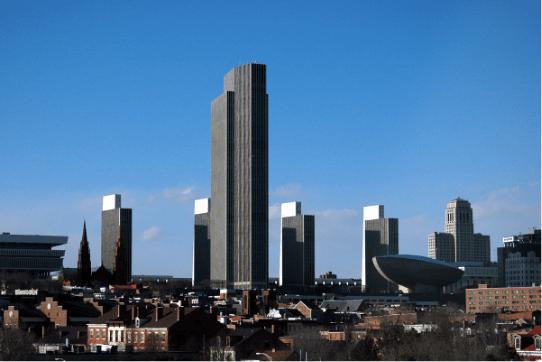
2020 was an unprecedented year, with COVID-19 impacting nearly every industry across the country, including commercial real estate. Shutdowns due to the coronavirus pandemic caused a large portion of employees to work from home for much of the year. As the economy stalled, many businesses and property owners found themselves negotiating with both tenants and lenders on rent relief and loan modifications. While the pandemic accelerated trends that were already taking place in retail, it upended the strong momentum in the office and hospitality sectors as well as urban markets. These trends will likely continue in 2021 and reshape what buyers, owners, tenants, and residents may ultimately want to occupy.
Lessons Learned in 2020
- The pandemic expedited the declining demand for traditional brick-and-mortar retail (e.g., enclosed malls, department stores) and forced consumers to adopt online shopping more quickly than they ever planned.
- As with any economic disruption, there are winners and losers. While the coronavirus outbreak halted the hospitality industry with widespread hotel and restaurant cancellations, it spurred demand for industrial space primarily to support distribution and storage. Freestanding retailers (especially drive-thrus) and net leased office space also held up exceptionally well compared to actively managed retail.
- The sudden shift to work-from-home has created new expectations about flexibility that cannot be undone. People are making new choices about where they want to live, how and where they want to work; and the massive deployment of remote work technology platforms has only accelerated this push.
While we wait for the vaccine to become more widely available, we expect the recovery in 2021 to be led by industrial, grocery retail, multifamily, land, single-tenant net leased, and drive-thru retail properties. The leasing of small office spaces will be preferred over larger ones and tenants will look for flexibility in lease terms. Secondary and tertiary markets will grow echoing people’s current preference where to live. Vacant malls will be repurposed for nontraditional tenants as obsolete retail space is recommissioned. The new administration in Washington D.C. will hopefully be successful at reducing economic uncertainty related to combatting COVID-19, bringing back market stability (e.g., foreign capital), and steadying the job market. A recovering economy paired with continued low interest rates should help sustain the private investor market and may push commercial real estate asset prices higher in 2021.
